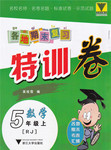题目内容
--I am wondering how to find the newly-built theater.
--Go straight two blocks. You__________miss it, for it's a white building like a huge castle.
|
A.can't |
B.mustn't |
C.shan't |
D.needn't |
A
【解析】略

 各地期末复习特训卷系列答案
各地期末复习特训卷系列答案 小博士期末闯关100分系列答案
小博士期末闯关100分系列答案How hard we have all prayed(祈祷) to grow up quickly, and looked forward to the happy days of being a grown-up and enjoying the many interests that a youth should have.
At last, you have grown up. At least you are no longer a child. They call you “young lady”. You then enjoy the pleasure of being a young lady. You are proud of being a grown-up teenager. People welcome you-this young lady-heartily. You are glad that your prayer has been answered.
But there is always something that troubles you a lot. You say; “Papa and Mama, give me some money please. My pocket money is all gone already.”
“No”, they say, “your age is a dangerous age. If you have too much money to spend, it won’t do you any good.” Then you have to stay at home because you dare not go out with an empty pocket.
Another time you tell your grandma, “Grandma, see, I am a grown-up now.”
“Good, now, you can sit here and knit (编织) this for me while I go and have a rest.” To show that you are no more a child, you have to sit there the whole afternoon doing the work, which only a grown-up can do. After an hour, you find it hard to do, and give the knitting basket back to your grandma. Your grandma criticizes your work. You hear what she says, “Such a big girl can’t do such easy work.” You wish then you were a child again.
But the fact is, you are growing up, and you can’t help it. That’s the way it goes!
1.The passage is told about _______ problems.
|
A.a growing-up boy’s |
B.a teenage girl’s |
|
C.an old woman’s |
D.a grown-up’s |
2.It is clear that the writer, as a teenager, ________.
|
A.is pleased with the present life |
|
B.is unhappy about growing up |
|
C.doesn’t think her, present life happy enough |
|
D.knows happy life will come to her soon |
3.How does she know her prayer has been answered?
|
A.People treat her as a young lady |
|
B.She is no longer a kid. |
|
C.People begin to call her teenager. |
|
D.She can join women in all kinds of activities. |
4.From what her parents say, we know _________.
|
A.they don’t believe she is already a teenager |
|
B.it’s dangerous for a girl to spend money |
|
C.they love her more than before |
|
D.they still regard her as a child |
5.Having heard her grandma’s criticism, _________.
|
A.she has to lie in bed, doing nothing |
|
B.she knows she has already worked the whole afternoon |
|
C.she wishes she were not growing up |
|
D.she finds it isn’t her turn to do knitting |
My father’s reaction to the bank building at 43rd Street and Fifth Avenue in New York city was immediate and definite: “You won’t catch me putting my money in there!” he declared, “Not in that glass box!”
Of course, my father is a gentleman of the old school, a member of the generation to whom a good deal of modern architecture is upsetting, but I am convinced that his negative response was not so much to the architecture as to a violation of his concept of the nature of money. In his generation money was thought of as a real commodity (实物) that could be carried, or stolen.
Consequently, to attract the custom of a sensible man, a bank had to have heavy walls, barred windows, and bronze doors, to affirm the fact, however untrue, that money would be safe inside. If a building’s design made it appear impenetrable(难以渗透的), the institution was necessarily reliable, and the meaning of the heavy wall as an architecture symbol reflected people’s prevailing attitude toward money.
But the attitude toward money has, of course, changed. Excepting pocket money, cash of any kind is now rarely used; money as a tangible commodity has largely been replaced by credit. A deficit (赤字) economy, accompanied by huge expansion, has led us to think of money as product of the creative imagination. The banker no longer offers us a safe: he offers us a service in which the most valuable element is the creativity for the invention of large numbers. It is in no way surprising, in view of this change in attitude, that we are witnessing the disappearance of the heavy-walled bank.
Just as the older bank emphasized its strength, this bank by its architecture boasts of imaginative powers. From this point of view it is hard to say where architecture ends and human assertion (人们的说法) begins.
36. 1.The main idea of this passage is that________.
|
A.money is not as valuable as it was in the past |
|
B.changes have taken place in both the appearance and the concept of banks |
|
C.the architectural style of the older bank is superior to that of the modern bank |
|
D.prejudice makes the older generation think that the modern bank is unreliable |
37. 2.How do the older generation and the younger one think about money respectively?
|
A.The former thinks more of money than the latter. |
|
B.The younger generation values money more than the older generation. |
|
C.Both generations rely on the imaginative power of bankers to make money. |
|
D.To the former money is a real commodity but to the latter be a means to produce more money. |
38. 3.The words “tangible commodity” (Line 2, Para. 4) refer to something ______.
|
A.that can be replaceable |
B.that is usable |
|
C.that can be touched |
D.that can be reproduced |
39. 4.According to this passage, a modern banker should be _______.
|
A.ambitious and friendly |
B.reliable and powerful |
|
C.sensible and impenetrable |
D.imaginative and creative |
40. 5.It can be inferred from the passage that the author’s attitude towards the new trend in banking is _______.
|
A.cautious |
B.regretful |
C.positive |
D.hostile |